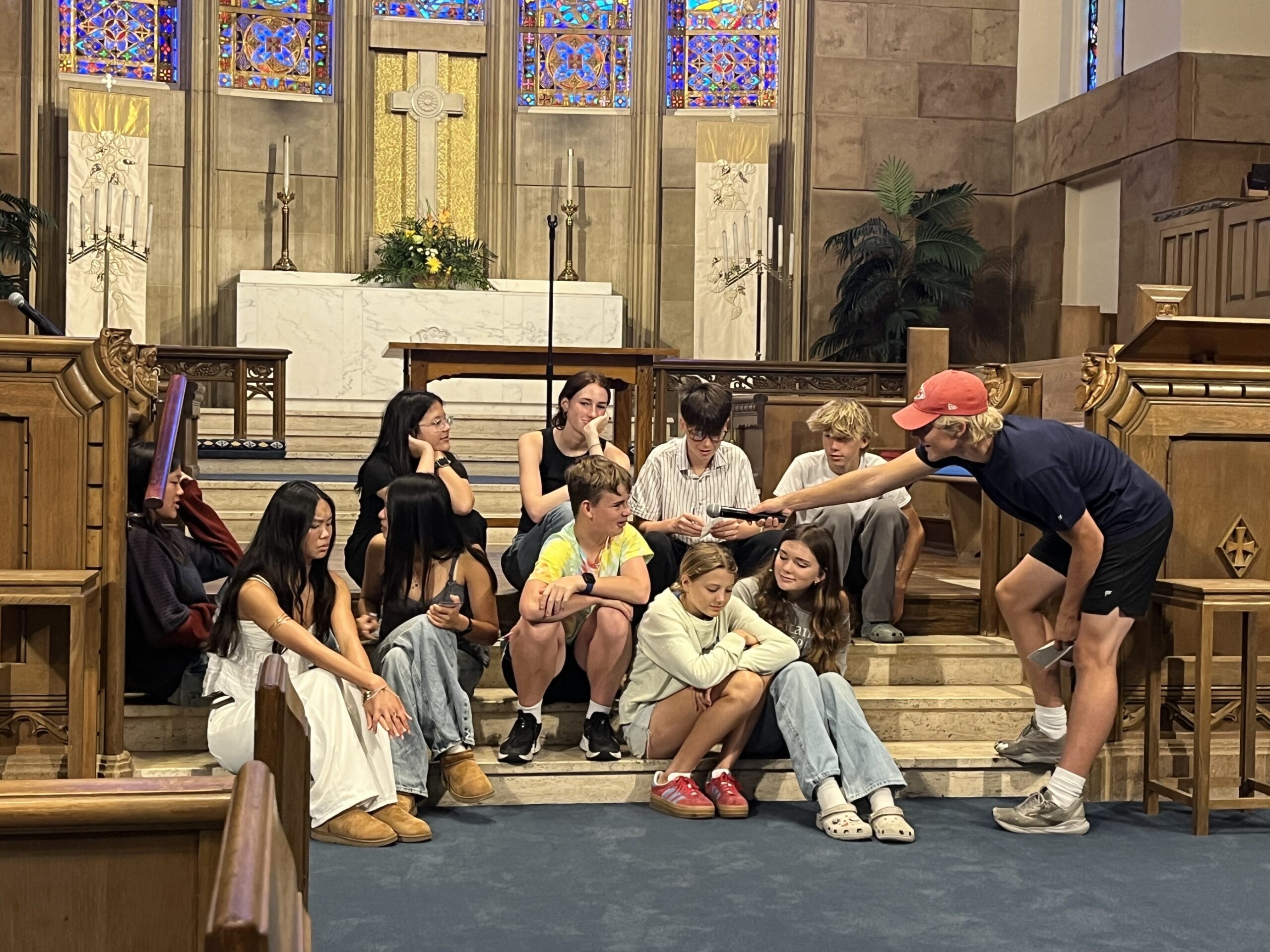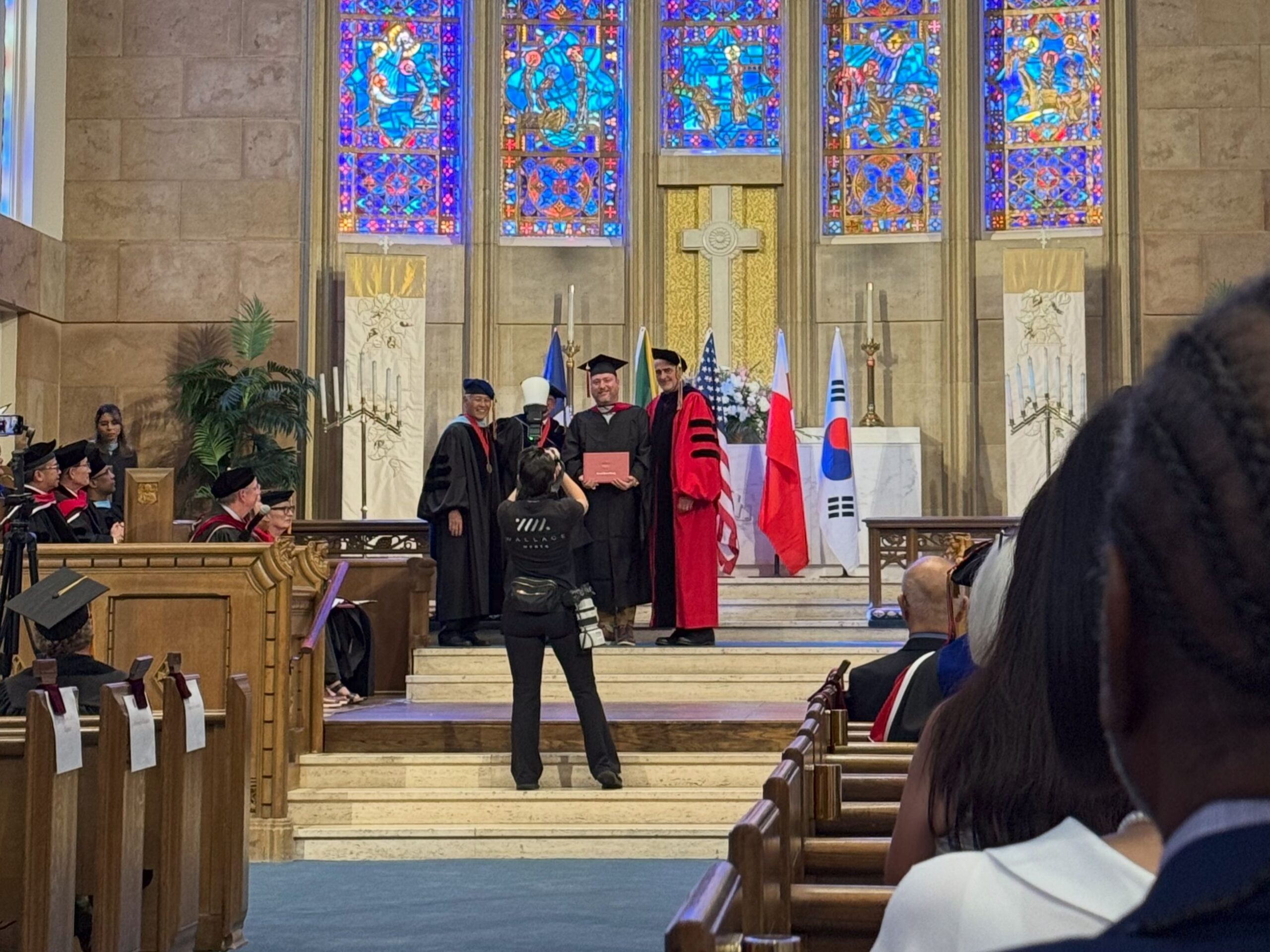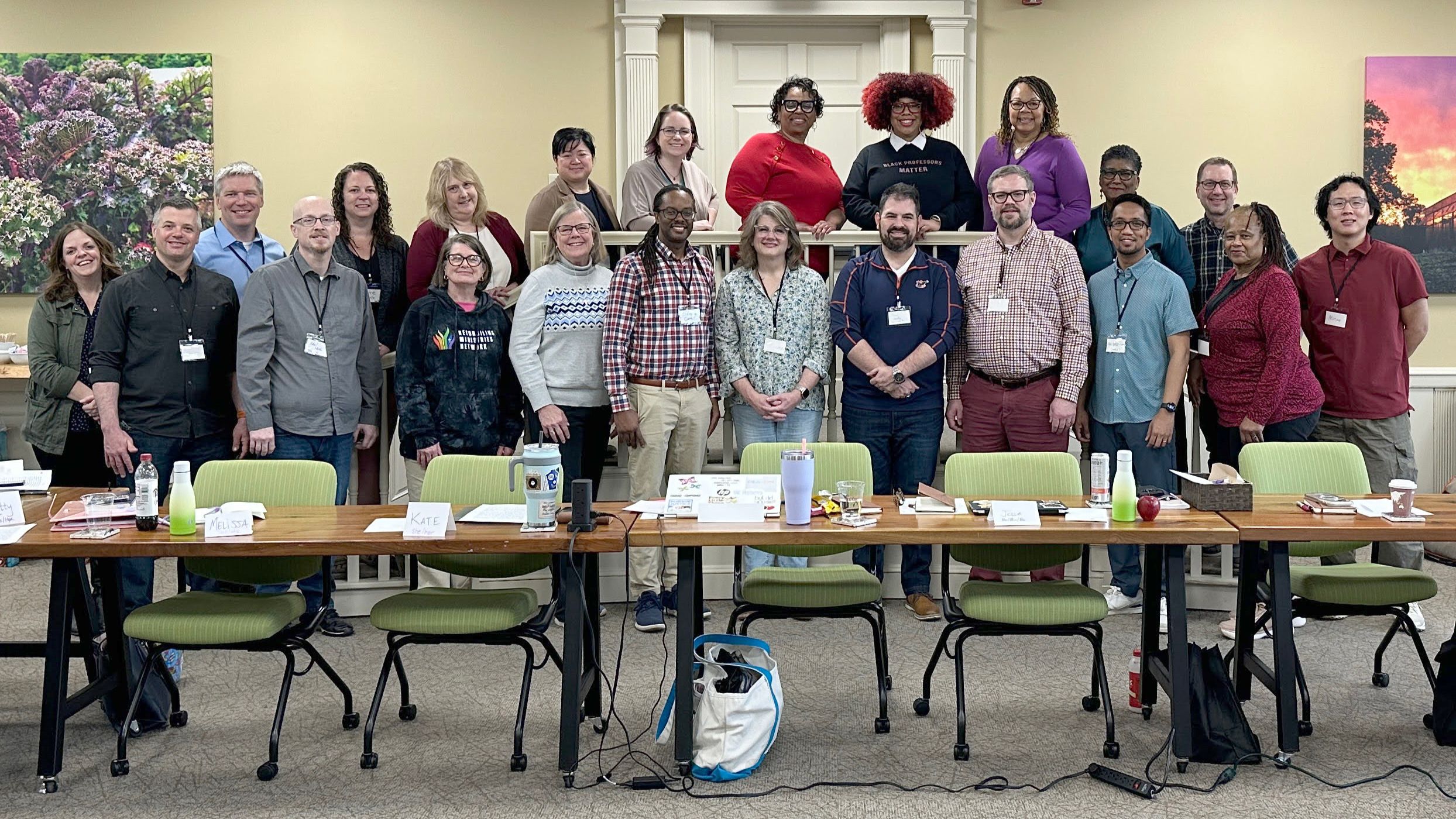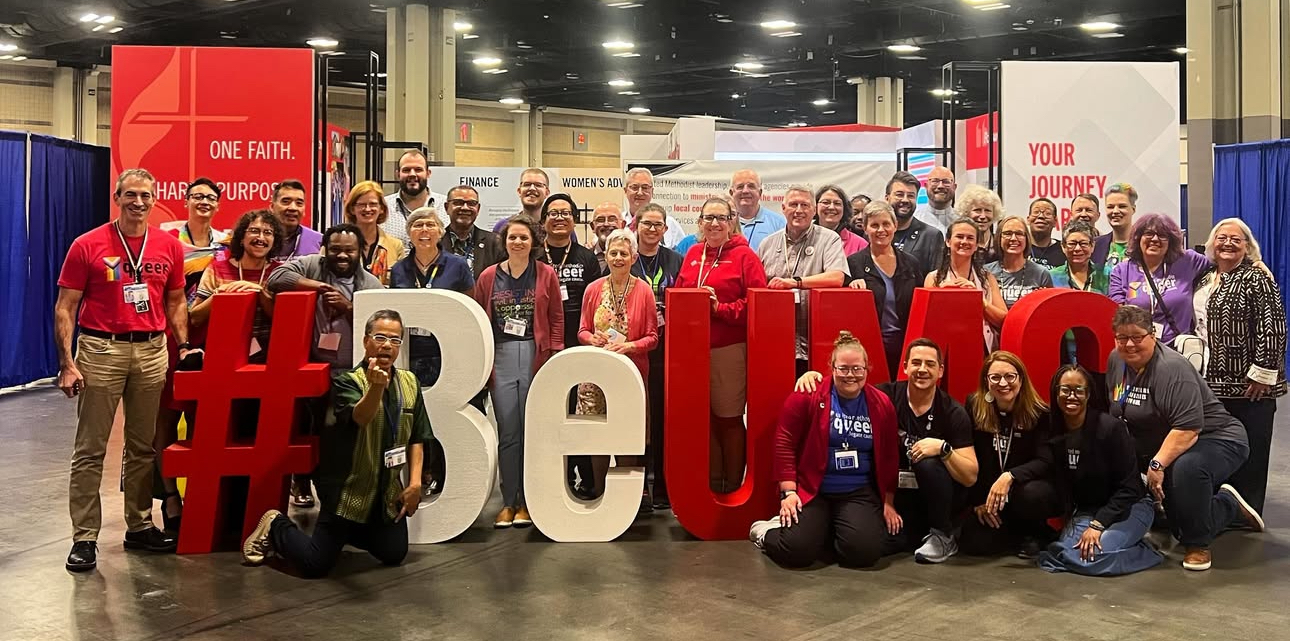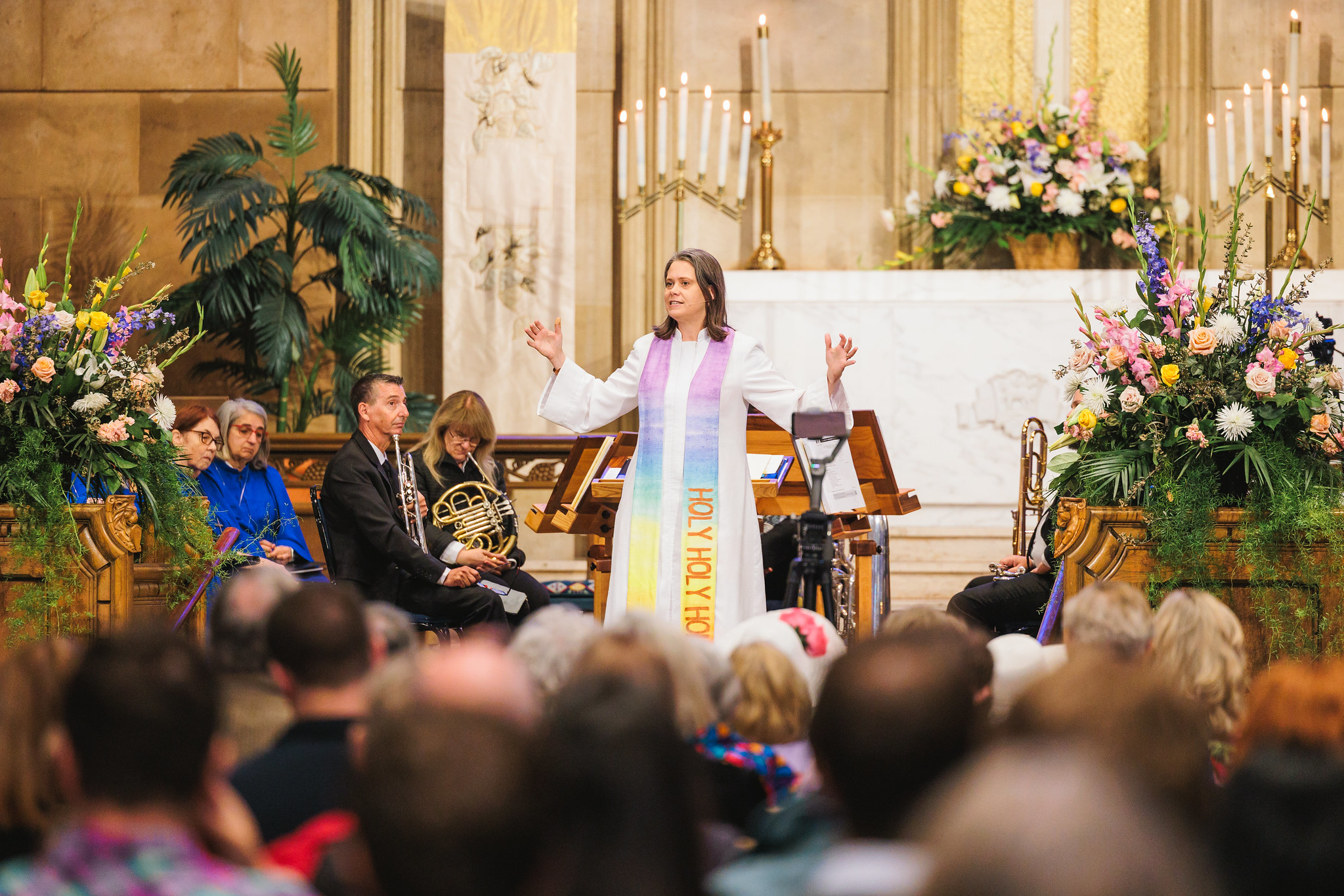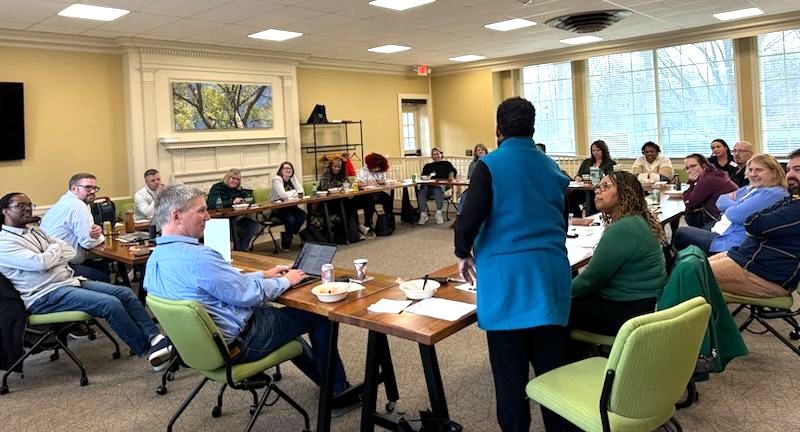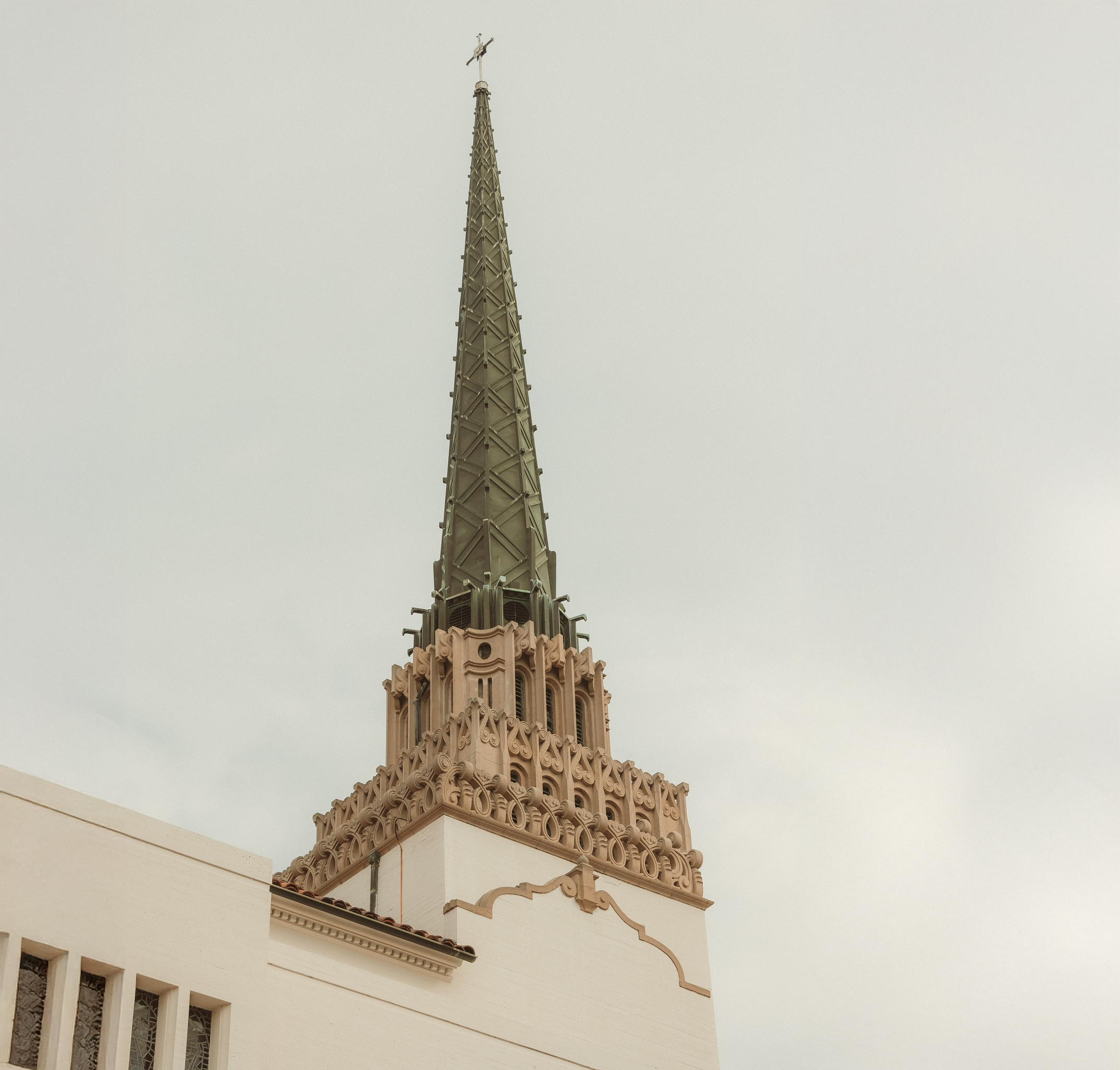Dear Westwood Family,
Today, I joined a group of Westwood UMC folks on a tour of the Sam and Alfreda Maloof Foundation for Arts and Craft, on the edge of Rancho Cucamonga. There, we were able to walk through the home that Sam Maloof built. With his wife Alfreda, he filled it with beautiful art they collected, and furniture he built. Immediately upon entering, I was overwhelmed with the warmth and energy of their beautiful, handmade space.
I was excited to take the tour, to get a deeper connection to the artist whose worship furniture is now a part of our Sanctuary, on long-term loan from the Claremont School of Theology. I encourage you to take time to see and touch the beautiful altar, cross, and chairs that he built for CST’s Chapel in the 1990s. They are now located in the prayer chapel on the east side of the Sanctuary.
Maloof’s work is hard to describe, in that it’s so beautifully wrought that “furniture” seems insufficient to its artistry. But “woodworker” was what Maloof called himself all through his life, on his business card, when he received a MacArthur “Genius” grant, and when asked, as quoted in his obituary in the LA Times: “’I like the word,’ he once said, his eyes brightening behind large, owl-eyed glass frames. ‘It’s an honest word.’”
I find Maloof’s work both inspiring and comforting: there’s a certain peace that comes through these simple materials that are thoughtfully and carefully crafted into useful objects. Humble. Honest. With integrity, in the sense that the material and the object and the one who uses it are all well integrated. Everything is integral.
This is, for me, an image that speaks to the kind of life of faith I seek to live. One that is simple, but beautiful; elegant, but strong; thoughtful, well-built, and practical. My faith ought to be shaped to my body, and hospitable to others, too.
On the tour, our guide several times asked us to compare chairs Maloof had made early in his career with those made toward the end of his life. He was continuously refining the shapes, so they felt better to sit in, and were more beautiful. Consistently, his work made the joinery a feature–as if he meant you to understand that he had worked on it. I find both of these details reassuring, as I continue to work at my own life. In our Wesleyan tradition, we describe how the grace of God works in us as we are “going on to perfection” in love. I hope that others might be able to trace the evolution of my own practice of living out Christ-like love, as I’ve learned and changed and honed the craft of my faith.
As you reflect on your own practice of faith, I invite you to reflect on how you’ve grown, too. Where are you still working out some things? How can you let your life better reflect divine love?
I am glad to share this work with you.
grace and peace,
Pastor Molly


